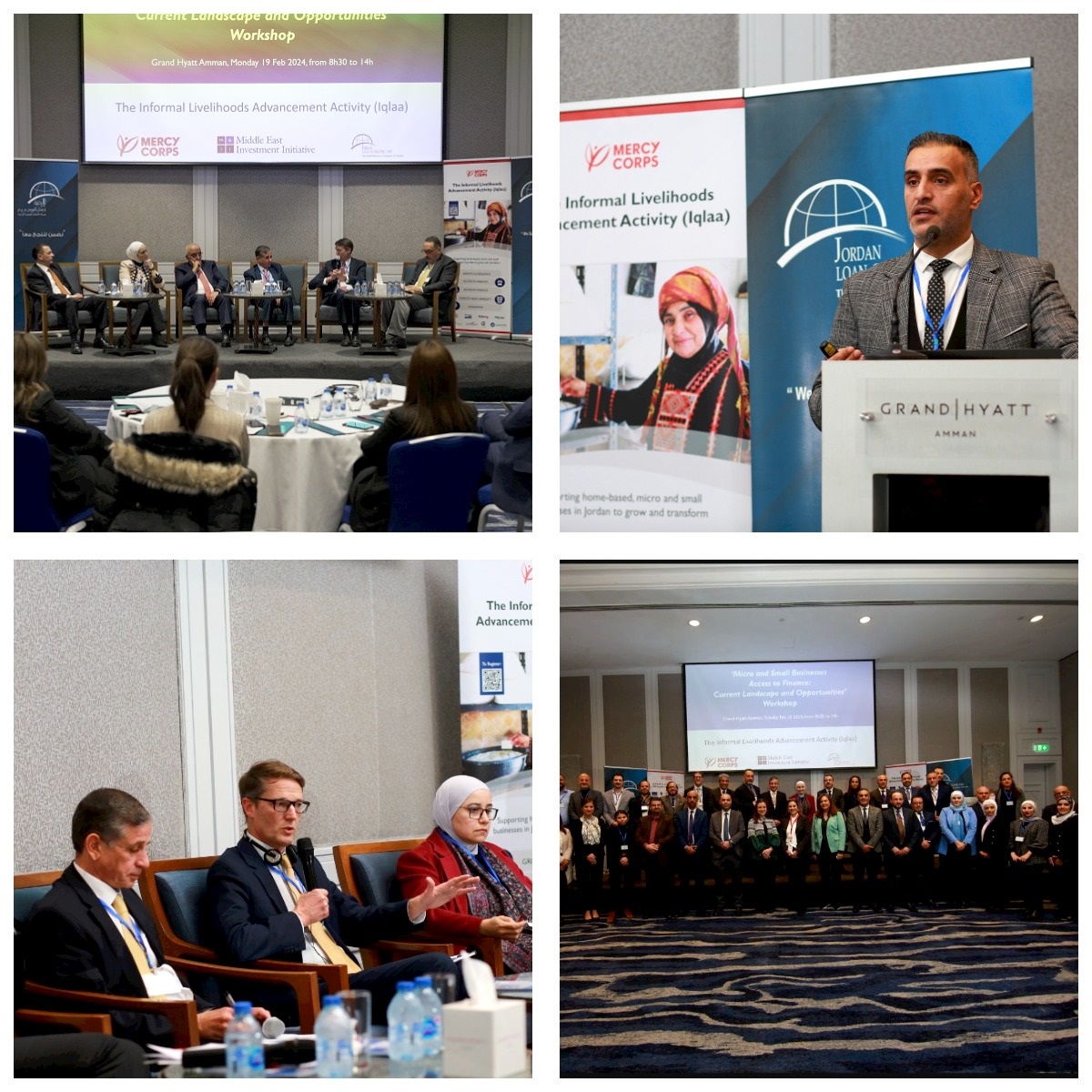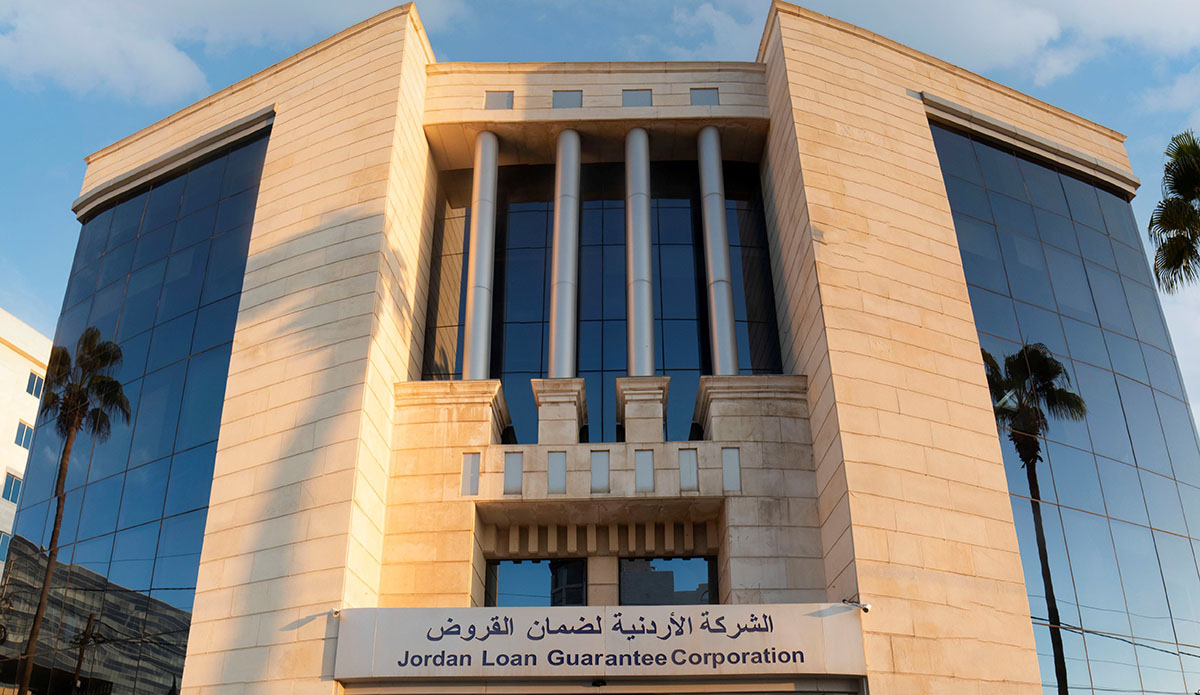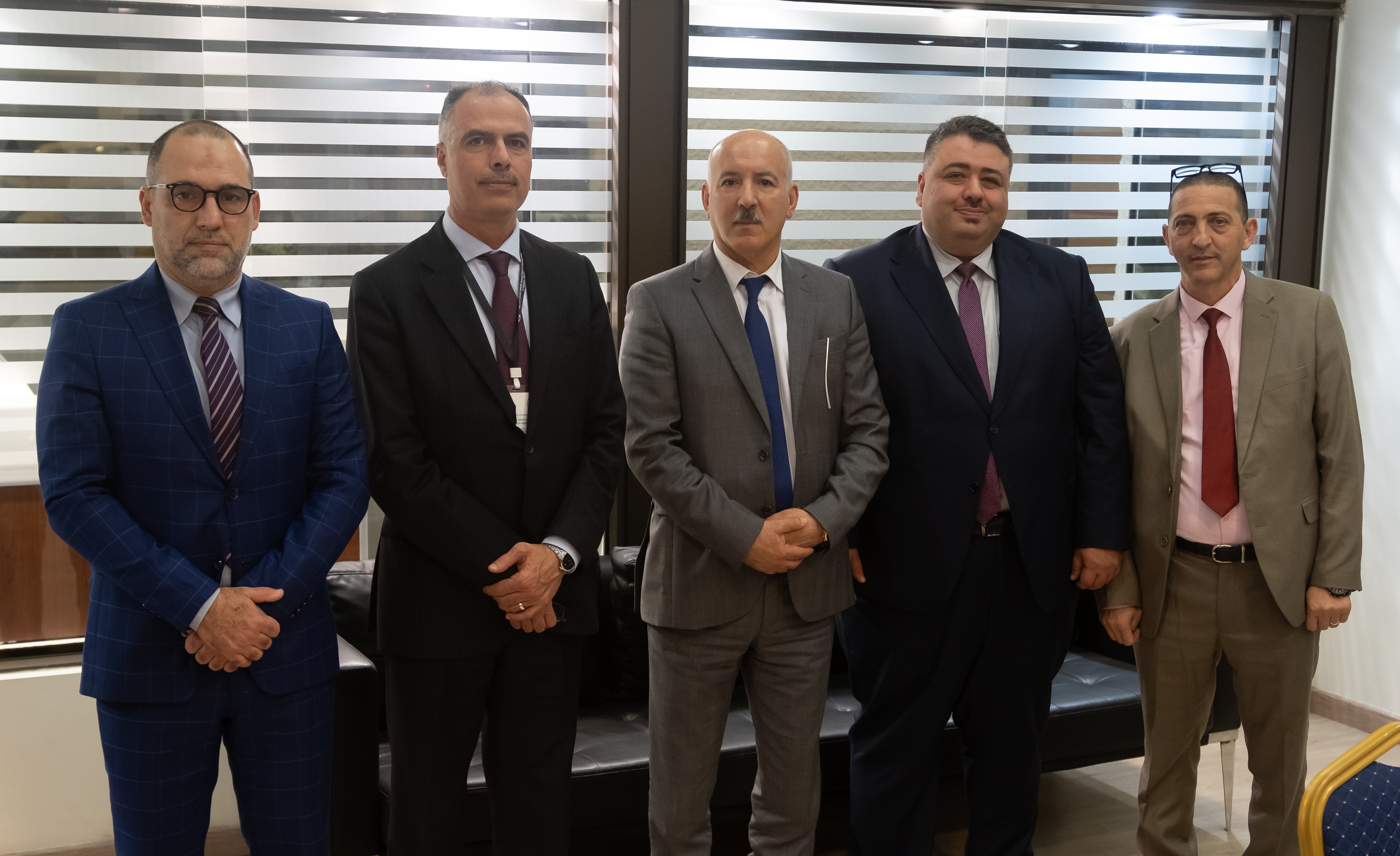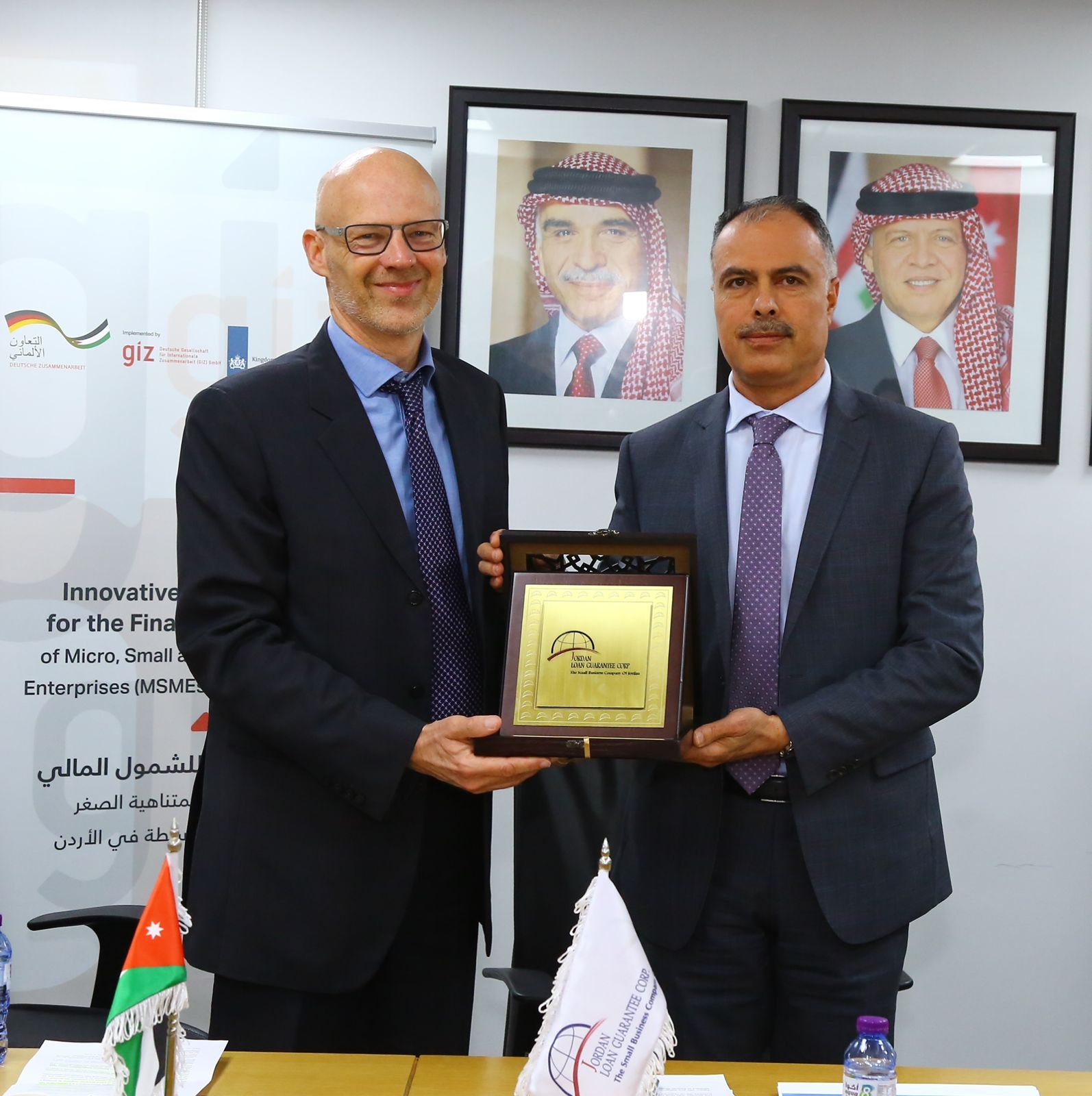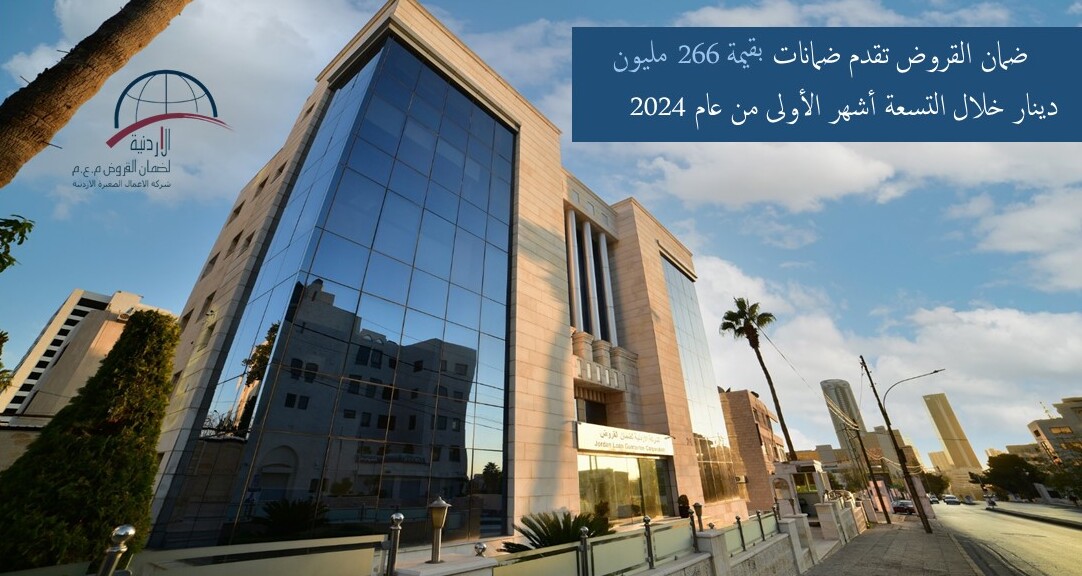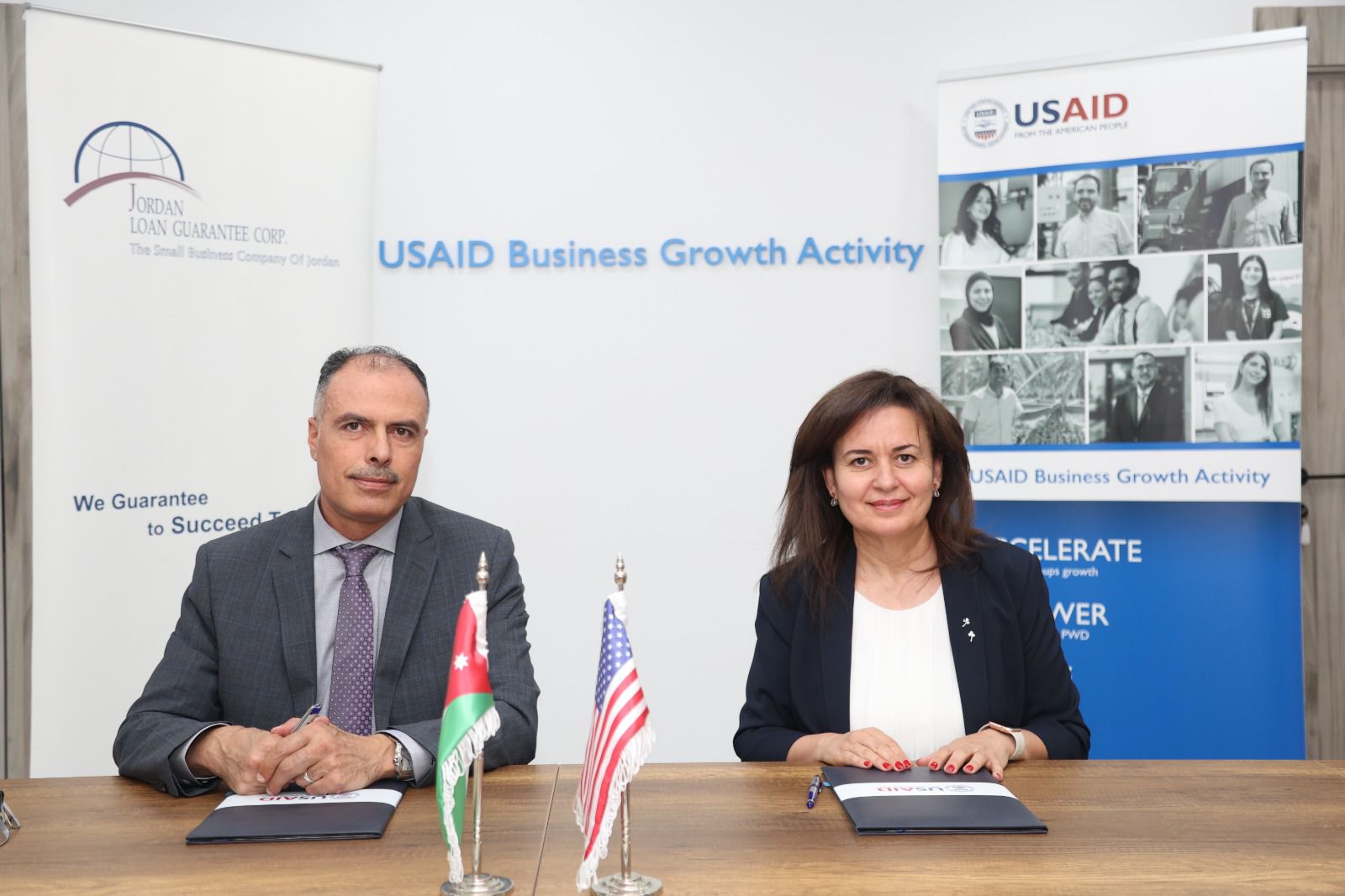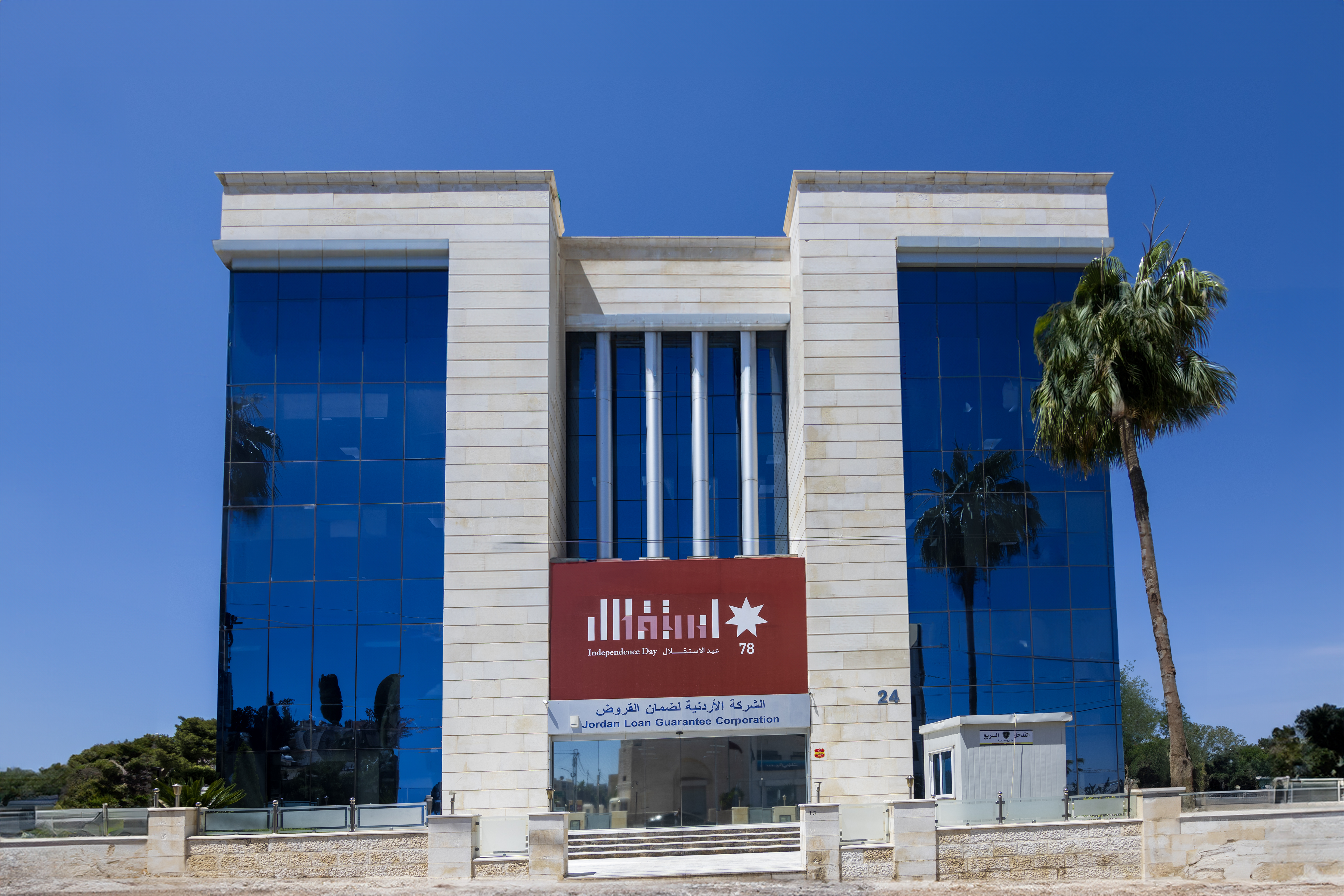In line with its objectives to facilitate access to finance for home-based businesses (HBBs) and micro and small enterprises (MSEs), The Informal Livelihoods Advancement Activity (Iqlaa) held two workshops on the 19th and 20th of February 2024 for financial service providers in Jordan including banks and microfinance institutions (MFIs). The workshops were held in collaboration between Iqlaa’s lead implementer - Mercy Corps, one of Iqlaa’s consortium partners - Middle East Investment Initiative (MEII), and Jordan Loan Guarantee Corporation (JLGC).
The initiative aimed at addressing the current access-to-finance landscape, loan guarantee schemes, best practices, challenges and opportunities facing financial service providers and MSEs, through presentations and engaging panel discussions. Capitalizing on its evidence-based approach, Iqlaa shared findings and recommendations from its own research efforts describing the access-to-finance situation for MSEs globally and locally, with a focus on loans as a challenge shared by MSEs and financial service providers in Jordan.
Studies conducted by Iqlaa's implementation partners, MEII and Dalberg, revealed that banks show reluctance to lend to MSEs due to perceived high risk. Additional challenges include MSEs' inability to provide collateral, limited financial literacy, and religious considerations by MSEs. Furthermore, issues related to contract enforcement, insolvency resolution, and poor bookkeeping among MSEs exacerbate the situation.
Commenting on MSE’s access to finance in the country, Iqlaa’s Chief of Party Laith Al Qassem said, “despite the existence of a strong banking system and the emergence of venture capitalists, MSEs face significant hurdles in securing capital; barely 3% of commercial bank loans in Jordan are received by MSEs, and this is usually due to the high-risk associated to MSEs by financial service providers. Banks could be missing an opportunity for risk diversification here”.
He added, “With a deep understanding of the challenges that MSEs face, the Iqlaa program aims through its interventions to bridge the gap between MSEs and financial service providers in Jordan. The objective of these two workshops is to highlight and better understand the challenges faced by MSEs in accessing finance and to identify how these challenges might be mitigated and the types of opportunities that could arise. We are especially happy to collaborate with JLGC, the leading loan guaranty entity in the country, as we aim together to facilitate dialogue and promote loan guarantee schemes that cater specifically for MSEs’ needs”.
Sharing insight on how JLGC contributes to handling the challenges faced by micro, small and medium enterprises (MSMEs), Dr. Mohammed Al Ja’fari, Director General of JLGC said, “JLGC’s relation with banks and MFIs provides the opportunity to study, assess and further develop our loan guaranty programs and to highlight JLGC’s role in strengthening financing for MSMEs and enabling them to better access finance”. He added, “such workshops within the scope of Iqlaa and in collaboration with Mercy Corps and MEII will allow JLGC to present its diverse loan guarantee programs, which are a safe and necessary tool to facilitate finance for MSMEs. JLGC aims to continue enhancing lending opportunities for MSMEs by offering additional guarantees through its existing programs, and introducing new programs that would serve the national economy and entrepreneurial startups in the country, which feeds into Jordan’s efforts to eliminate poverty and unemployment”.
The Informal Livelihoods Advancement Activity (Iqlaa) is a five-year program that started in 2022 and aims to support Jordan's HBBs and MSEs to grow, transform, and become resilient to future shocks. Iqlaa’s approach explores new ways of doing business and improving access to finance, markets, and services. The program focuses on four sectors: agriculture, hospitality and tourism, manufacturing, and services, with a special focus on technology development and implementation. Iqlaa infuses a gender, youth, and social inclusion lens throughout all interventions.



